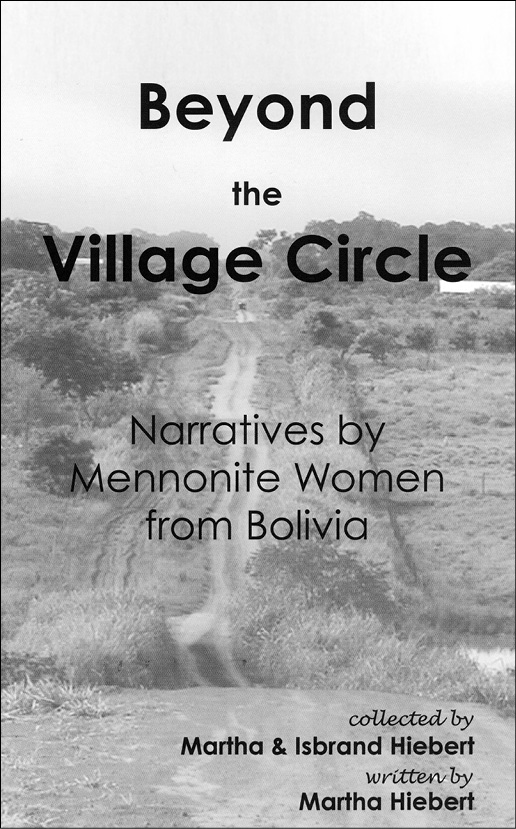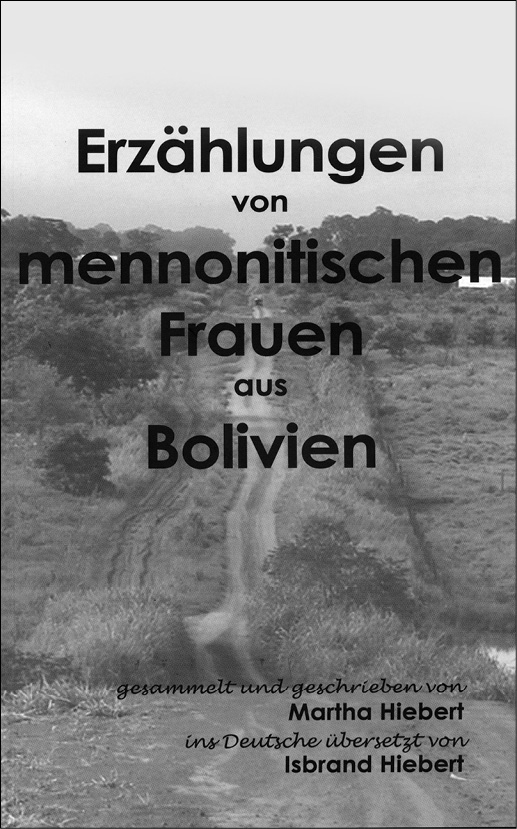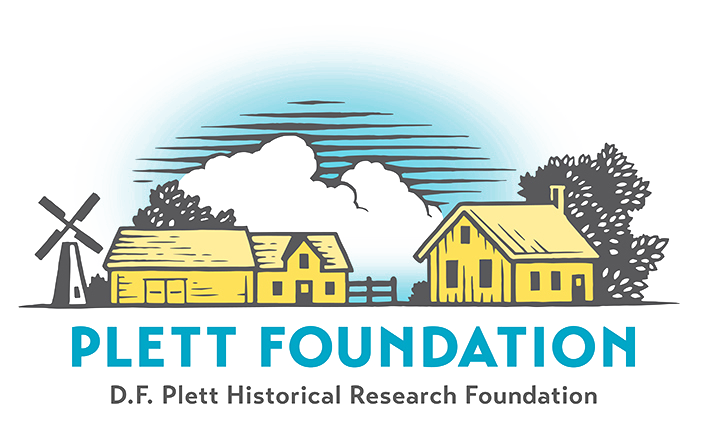Review: Beyond the Village Circle
Beyond the Village Circle: Narratives by Mennonite Women from Bolivia
By Martha Hiebert
Steinbach, Manitoba: Self-published, 2017, pp. 99. Softcover
Reviewed by Kerry Fast

Beyond the Village Circle is a collection of sixteen stories, vignettes according to the author, drawn from the lives of Bolivian Mennonite women. They are easy to read, some as short as three pages, others as long as thirteen pages. In total, eight colonies and three communities are represented, and two stories are anonymous.
It is not an easy thing to speak strangers and ask them if they would be willing to talk to you about their lives, and Martha Hiebert is to be lauded for her determination in pursuing her dream of more than twenty years and putting herself very much outside her comfort zone to bring us these stories. Hopefully the German they are translated into will make the book accessible to the women who told their stories to Martha.
While each story is unique, several themes are apparent, and along the way we get glimpses of Bolivian Mennonite life: Old Colony piety, community and family dynamics, intergenerational relations, colony life, and Mennonite–Bolivian interactions.
A disproportionate number of stories are about Doktamumkjes (healers) or midwives, but this is perhaps not surprising. These are women who interact with a variety of people on a daily basis, both Mennonite and Bolivian, and who travel regularly to Santa Cruz for supplies and to give assistance to their clients as they visit doctors, and thus telling their story to a stranger may not have been as intimidating as for women who do not have a public role in village life. We read of Anna Banman who inherited her mother’s practice and Anna Doerksen, who, after nursing her husband who had MS for many years, was instrumental in establishing a care home for seniors. Eva Friesen took over a neighbour’s pharmacy in part because colony leadership had approached her to take over a government-run immunization program on her colony, and she had found this medical work meaningful. Lottie Friesen fulfilled a childhood dream by becoming a Doktamumkje and developed a partnership with a Bolivian doctor to further her medical knowledge. We read of the harrowing night Greta Klassen delivered three babies—all in a night’s work!—and of Helena Bergen who was brought up in her parents’ practice and who, at the age of eighteen, successfully delivered a baby of her own. These are stories of women actively engaged in their communities, providing a vital service and finding meaning in attending to the health needs of their fellow Mennonites.
Another theme around which several stories circle is re-location to Bolivia. Maria Wiebe, who as a teenager resisted her family’s move from Paraguay to Bolivia, tells us how she was reminded of a hymn by a neighbour that sustained her throughout her life. The story of Lena Hildebrandt reveals a woman who took the challenges of settling in Bolivia in stride. Aganetha Doerksen too took her new life in stride, but also found humour in what others might have seen as a hardship. On the first morning of their new life in Bolivia, she and her family woke to find themselves covered in sand and soot from an overnight wind storm. They couldn’t help but laugh at how funny they looked. Susanna Fast and her husband not only resettled their own family from Mexico, but took in a neighbour woman with a handicap and welcomed her into their new life in Bolivia. The story of Katharina Rempel, who moved from Swift Colony in Mexico, is a fitting final story of the collection. Her daughter was the first baby to be born on the new colony of Chihuahua.

And then there are stories of religious tension as women turned to more evangelical forms of Christianity. For one woman and her family, this meant being evicted from their rented home. Martha Kehler experienced the difficulty of moving from Canada to Bolivia, and her family, feeling constrained by the expectations of colony life, could never entirely accept Old Colony life nor were they ever entirely accepted. Maria Harder and her husband, driven off their colony because of a violent attack on her husband, eventually set up a small hotel and dedicated their lives to serve the community around them. Helena Janzen tells the story of her husband’s painful excommunication from the Old Colony and their move to a community of evangelical Mennonites. These are more difficult stories to read because they remind us of the reality of intra-community conflict and of power imbalances that exist in communities.
Certainly for all of the women whose stories appear in Beyond the Village Circle, their worlds stretch well beyond the village. Many have lived in more than one country, and many of them have had experiences that made them re-think their place in their colony. For others, their daily work of providing healthcare brings them in contact with a wide circle of people. But even as the women’s lives extend beyond their village, these stories are bound together by the village circle. They show us the central role women play in Bolivian Mennonite life, they show us the fabric of village life and the tensions that exist there, but they also show us how these women invested in their communities to establish a place for themselves.
